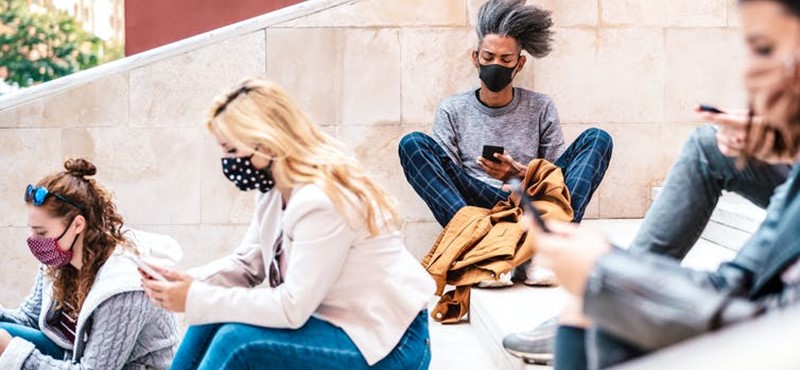Blended Learning at University

When online learning was announced I felt this sense of dread pour through me because it had never been explained to students. It was to my knowledge that online learning wasn't achievable or wouldn't have the same support as in-person learning.
But for the past year, online learning has been the way for most universities throughout lockdown and a lot of us have been able to adjust. Only in time for a new adapted form of learning to join the mix, blended learning is all the rave right now and students are split between being excited and confused of whether it’s the best idea.
And I think I fall somewhere between the two because online learning has been great! But will in-person learning go back to pre-Covid style teaching or introduce a new age of education that still makes materials accessible to students is what I want to know.
On one hand, blended learning is a handy combination of online and in-person learning that has all the perks of flexible studying at home. It is still in its infancy, but I’m personally hoping that it will be the best of both worlds, but since there’s not much information or clarity, students are still left hanging in uncertainty.
But there lies the question of has Covid has made universities accessible? The adaptations that have been made since the start of the pandemic show that online teaching can work for most people. Learning tools such as libraries were adapted to have online access and reading lists were made digital so that everyone can get those good grades.
As someone diagnosed with dyslexia, I can attest to the fact that online learning works for me. This year I received by far my best marks because texts were so easy to engage with online: phrases are easier to search for, you can highlight digitally and find pages with a click. Through the Disabled Students Allowance, I was given assistive technology that helped aid my learning experience.
Being able to watch lectures when I need them, pause them at my own will to take notes and replay the parts I misheard has been brilliant. There’s always something a little intimidating about a busy lecture theatre in the morning that I’m excited to leave behind. At least when lectures are online you can absorb the materials rather than race to write it all down.
This makes it much easier for students like me with learning disabilities to digest and engage with learning materials. I'm a student about to start my fourth and final year in September, so blended learning is new to me too, but it comes with a few quirks.
Like the opportunity to get hands-on learning! As much as I love online content not everything can be learned online, sometimes you need tools that require hands-on learning. That's where I struggled last year, so I am excited for in-person classes that may have a more physical approach to teaching that requires specific tools that cannot be accessed online.
With the Covid-19 restrictions eased in August, the limitations of social gatherings are no longer in effect. I know outside of the academic side; I'm going to love being able to be a student again. Studying online with friends and group projects was almost made impossible what with bad Wi-Fi connections made a dent in my third-year experience.
It’s going to be interesting to learn how to adjust to university in a post-Covid world. Like so many others, I’m geared up to kickstart my social life again. I want to go to the library to study, but I also wish those materials will still be made accessible online.
I don’t want universities to use blended learning as an excuse to take away so many great accessible resources. If anything, I think online learning has made it blatantly obvious that materials can be made accessible online all of the time and we should continue with that.
So, has Covid made universities more accessible? Hopefully! Now that the foundations are in place, let's see if we can push for growth. We're all aware online learning can work now and I have benefitted from it and I do think online learning can be permanently adaptable for disabled students to benefit from. We just need to see if they keep these adaptions they have put in place, and make sure our opinions are heard when they're deciding so.
 |
Written by Iman Mackenzie, Communications Intern |


 Follow Euan's Guide on Instagram
Follow Euan's Guide on Instagram
 Follow Euan's Guide on LinkedIn
Follow Euan's Guide on LinkedIn
 Follow Euan's Guide on Facebook
Follow Euan's Guide on Facebook


Comments
You have to be signed in to leave a comment.
Login / Signup